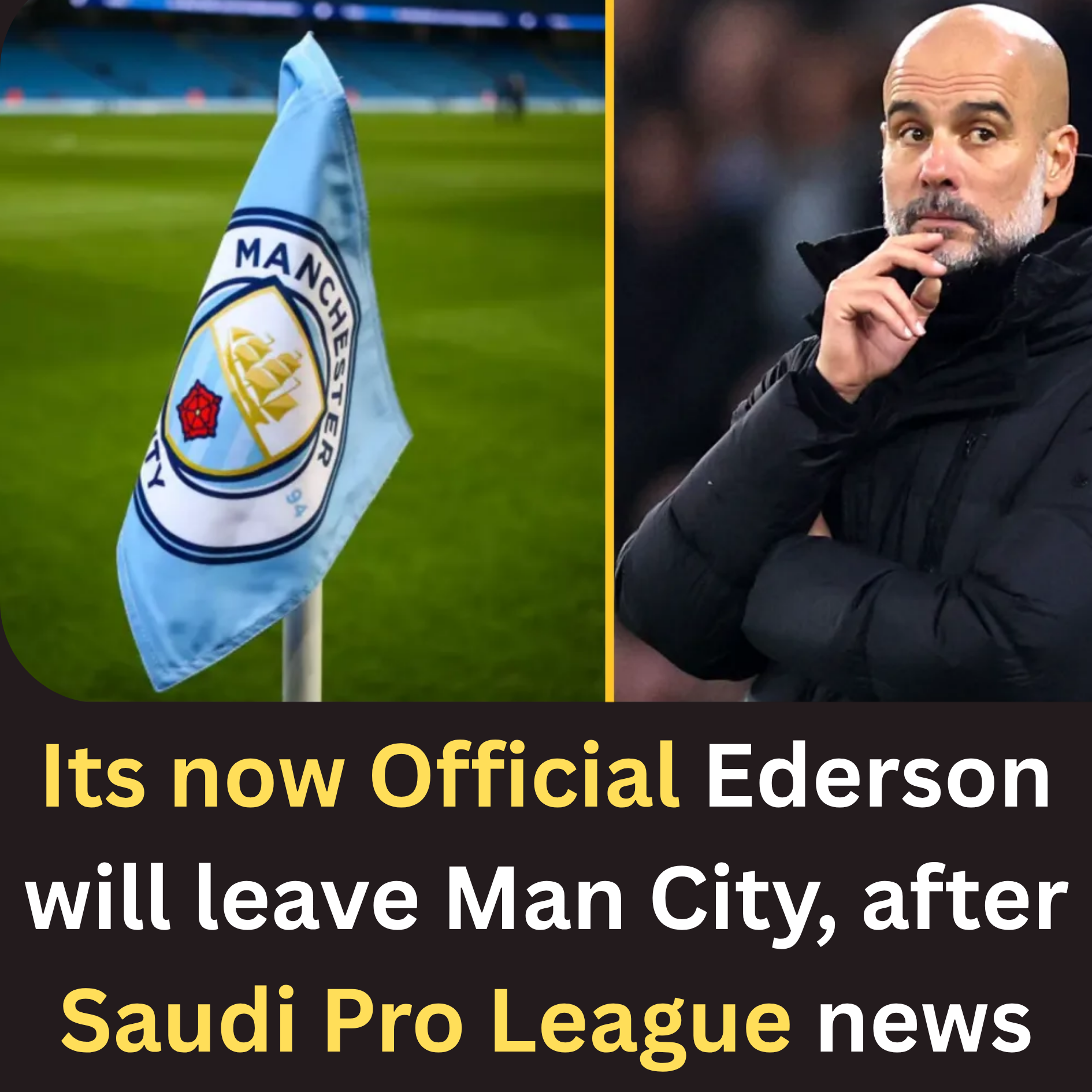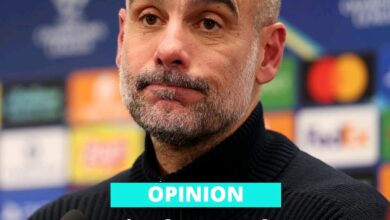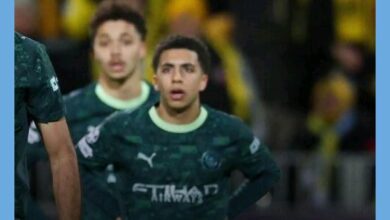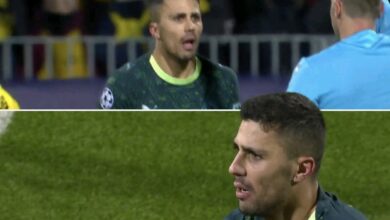Ederson will leave Man City for free’ after Saudi Pro League news

Ederson’s situation at Manchester City has evolved considerably over recent seasons, transforming from an undisputed first-choice goalkeeper to a player whose position has come under legitimate scrutiny. The Brazilian’s status underwent a notable shift last season when Stefan Ortega was selected ahead of him in over a third of City’s fixtures, marking a significant departure from previous campaigns where Ederson’s place in the starting eleven was rarely questioned.
This changing dynamic at the Etihad reflects several underlying factors that extend beyond simple performance metrics. Pep Guardiola’s tactical evolution has increasingly emphasized the importance of having multiple viable options in every position, creating genuine competition that pushes players to maintain peak performance levels. Ortega’s emergence as a credible alternative has not only provided Guardiola with tactical flexibility but has also created an environment where Ederson can no longer take his starting position for granted.
The psychological impact of this shift cannot be understated. For a goalkeeper of Ederson’s caliber, who has been accustomed to being the undisputed number one at both club and international level, sharing playing time represents a significant adjustment. His reactions to this change, both on and off the pitch, have been scrutinized by fans and media alike, with his social media activity toward the end of last season prompting speculation about his long-term commitment to the club.
However, Ederson’s continued participation in Manchester City’s Club World Cup campaign suggests a professional approach to his situation. His involvement in this prestigious tournament indicates that despite the speculation surrounding his future, he remains committed to performing at the highest level for the club. This professionalism, combined with his undeniable quality, explains why City are content to allow him to see out his contract on his own terms.
The Kevin De Bruyne Precedent: A Template for Departure
Paul Robinson’s comparison between Ederson’s situation and Kevin De Bruyne’s recent departure provides valuable insight into Manchester City’s evolving approach to contract negotiations and player transitions. De Bruyne’s move to Napoli on a free transfer after announcing his departure toward the end of last season established a precedent that could influence how the club handles similar situations in the future.
The De Bruyne case demonstrated that Manchester City are willing to allow legendary players to dictate the terms of their departure, prioritizing player satisfaction and maintaining positive relationships over immediate financial returns. This approach, while potentially costly in terms of lost transfer fees, offers several strategic advantages that extend beyond simple monetary considerations.
Firstly, allowing players to leave on favorable terms helps maintain City’s reputation as a player-friendly destination, making it easier to attract top talent in the future. World-class players considering moves to the Etihad can be assured that the club will treat them with respect and dignity throughout their tenure, including during the departure process.
Secondly, this approach allows for better succession planning. Rather than being forced into rushed transfer decisions due to unexpected departures, City can plan replacements well in advance, ensuring continuity and maintaining squad quality. The additional time provided by allowing players to complete their contracts enables more thorough scouting, negotiation, and integration processes.
The De Bruyne precedent also highlights City’s financial strength and strategic patience. The club’s robust financial position means they can afford to forgo immediate transfer fees in favor of longer-term strategic benefits. This luxury is not available to all clubs, but for City, it represents a competitive advantage in managing player relations and squad transitions.
Financial Dynamics and Saudi Arabian Interest
The potential interest from Saudi Pro League clubs in Ederson’s services adds another layer of complexity to his contractual situation. The Saudi league’s emergence as a major player in the global transfer market has fundamentally altered the dynamics of player movements, particularly for established stars in the latter stages of their careers.
Saudi clubs’ ability to offer substantial financial packages, both in terms of transfer fees and player salaries, has created new opportunities for players seeking lucrative moves. For Ederson, approaching his 32nd birthday, a move to Saudi Arabia could represent a chance to secure his financial future while continuing to play at a high level in a rapidly developing league.
However, the timing of any potential Saudi interest creates interesting strategic considerations for all parties involved. If Saudi clubs are genuinely interested in Ederson, they face a choice between paying a transfer fee now or waiting to sign him as a free agent next summer. For Ederson, the decision becomes whether to accept a potentially lucrative immediate move or wait for even greater freedom to negotiate terms as a free agent.
Robinson’s analysis suggests that the financial incentives favor waiting. As a free agent, Ederson would have complete control over his destination and could potentially command higher wages due to the absence of transfer fees. This scenario would also allow him to evaluate his options more thoroughly, considering factors beyond pure financial considerations.
For Manchester City, the Saudi interest represents both an opportunity and a challenge. While they could potentially recoup some value by selling Ederson this summer, the club’s apparent preference for allowing him to leave on his own terms suggests they value the relationship and strategic benefits more than immediate financial returns.
Galatasaray’s Interest and European Alternatives
Galatasaray’s identification of Ederson as a potential target reflects the Turkish club’s ambitions and their recognition of his quality. The Istanbul giants’ interest represents a more traditional European option for the Brazilian, potentially offering the chance to compete in the Champions League while experiencing a different football culture.
From Galatasaray’s perspective, securing a goalkeeper of Ederson’s caliber would represent a significant coup. His experience in the Premier League and Champions League, combined with his technical ability and leadership qualities, would provide immediate upgrade to their squad. The Turkish club’s ability to offer European competition could appeal to Ederson if he wishes to continue testing himself at the highest level.
However, the financial realities of Turkish football mean that Galatasaray would likely struggle to compete with Saudi Arabian offers in terms of pure monetary compensation. This creates an interesting dynamic where Ederson must weigh sporting ambitions against financial considerations, a decision that will ultimately depend on his personal priorities and career objectives.
The European option also carries different implications for Manchester City’s planning. A move to Galatasaray would likely command a more modest transfer fee than Saudi interest, but it would represent a more conventional career progression that might be easier to plan around from a replacement perspective.
Stefan Ortega’s Role and Internal Dynamics
Stefan Ortega’s emergence as a viable alternative to Ederson has been one of the most significant developments in Manchester City’s goalkeeping situation. The German’s performances when called upon have not only provided Guardiola with tactical flexibility but have also created genuine competition that has elevated the standard of goalkeeping at the club.
Ortega’s success in displacing Ederson for significant periods last season demonstrates the quality depth that City have cultivated in their squad. This depth provides the club with options and reduces their dependence on any single player, including someone of Ederson’s caliber. The internal competition has arguably benefited both goalkeepers, pushing them to maintain peak performance levels.
From a tactical perspective, Guardiola’s willingness to rotate between the two goalkeepers suggests that he values different qualities in different situations. Ortega’s distribution style and approach to the position may suit certain tactical setups or opponents, while Ederson’s experience and shot-stopping ability remain valuable in other contexts.
This internal dynamic also influences City’s approach to Ederson’s contract situation. The presence of a capable alternative reduces the urgency to either extend Ederson’s deal or cash in through a transfer. The club can afford to be patient and allow the situation to develop naturally, secure in the knowledge that they have quality options regardless of the outcome.
Replacement Planning and Future Considerations
Manchester City’s reputation for meticulous planning extends to their approach to replacing key players, and Ederson’s situation is no exception. Paul Robinson’s suggestion that the club has plans for a “top-class replacement” reflects the strategic thinking that has become synonymous with City’s operations under their current ownership and management structure.
The identification and acquisition of Ederson’s long-term successor represents a complex challenge that extends beyond simple technical ability. City require a goalkeeper who can adapt to Guardiola’s tactical demands, handle the pressure of playing for a club with championship expectations, and provide the leadership qualities that Ederson has demonstrated throughout his tenure.
The additional time provided by allowing Ederson to complete his contract enables more thorough evaluation of potential replacements. City’s scouting network can assess multiple options, consider various price points, and potentially negotiate better deals by avoiding the pressure of immediate replacement needs.
This approach also allows for more seamless transition planning. Rather than thrust a new goalkeeper into a high-pressure situation immediately, City can potentially overlap their current and future number ones, providing time for adaptation and integration into the squad’s dynamics.
Broader Implications for Player Contract Management
The Ederson situation, combined with the De Bruyne precedent, suggests an evolution in Manchester City’s approach to player contract management. This strategy prioritizes long-term relationships and strategic planning over short-term financial gains, reflecting the club’s position of strength in the modern football landscape.
This approach has several broader implications for how elite clubs manage their playing assets. By demonstrating willingness to allow players to leave on favorable terms, City position themselves as an attractive destination for world-class talent. This reputation can prove invaluable in future transfer negotiations and player recruitment efforts.
The strategy also reflects changing dynamics in player power and contract negotiations. Modern footballers, particularly those at the elite level, increasingly demand greater control over their career decisions. Clubs that adapt to these changing expectations by offering greater flexibility may find themselves better positioned to attract and retain top talent.
However, this approach requires significant financial resources and strategic patience that may not be available to all clubs. City’s ability to prioritize long-term benefits over immediate financial returns reflects their robust financial position and strategic thinking, advantages that may not be replicable across the football landscape.
Conclusion: Strategic Patience in Modern Football
Manchester City’s handling of Ederson’s contractual situation exemplifies the strategic sophistication that has become characteristic of elite football club management. By allowing the Brazilian goalkeeper to dictate the terms of his potential departure, City demonstrate an understanding of player psychology, relationship management, and long-term strategic planning that extends beyond simple financial considerations.
The decision to potentially allow Ederson to leave as a free agent, while costly in terms of immediate transfer revenue, offers several strategic advantages including enhanced reputation among players, improved succession planning opportunities, and maintained squad harmony. This approach, following the De Bruyne precedent, suggests a evolved philosophy that prioritizes sustainable success over short-term gains.
As the situation continues to develop throughout the remainder of the transfer window and into next season, it will provide valuable insights into the effectiveness of this strategic approach. The ultimate resolution of Ederson’s future will likely influence how other elite clubs approach similar situations and may establish new precedents for player contract management in modern football.
Regardless of whether Ederson ultimately moves to Saudi Arabia, remains in Europe, or perhaps surprises everyone with an entirely different decision, Manchester City’s patient approach demonstrates the confidence and strategic thinking that has underpinned their recent success. The club’s willingness to prioritize player relationships and long-term planning over immediate financial returns reflects a maturity and sophistication that sets them apart in the modern football landscape.















